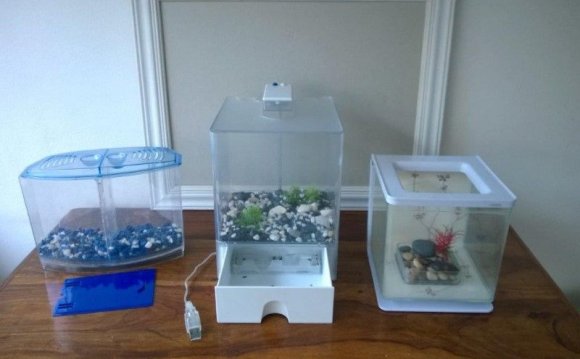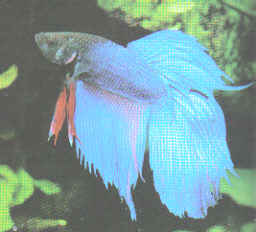
Siamese Fighting Fish - the guide for caring for them.
Lee Dobbins
With it's long flowing fins and vibrant colors, it's easy to see
why the Betta Splendens or Siamese Fighting Fish is a favorite
fish for fresh water aquariums. Often seen in tiny little bowls
in the pet store, this male of this species is fiercely
territorial and must be kept in separate bowls or aquariums or
they may fight to the death.
These interesting fish are equipped with a tipped up mouth that
enables them to get air from the surface of the water and,
therefore live in small bowls or those plant vases that are so
popular today. If you want to have a long lived healthy fish,
however this method of keeping him, is not recommended.
The ideal environment for a Siamese fighting fish, is a fish tank
of 5 gallons or more with proper filtration and heating. In
nature, this fish lives in very shallow water that has little
movement. It is a tropical fish and likes water temperature to be
in the high 70's. For the best health of your fish, keep the
water heated to 78 degrees and use a gently filtration system
that does not create any strong movement in the water.

As with any fish, the Betta will be in best health, if periodic
water changes are done and the replacement water is properly
conditioned. Keeping the tank clean helps to keep down the level
of toxins in the water and helps the fish resist disease. Another
important aspect to keeping any fish is to make sure you do not
overload the tank - a general rule of thumb is 1 inch of fish per
gallon. So if you have a 20 gallon tank, it can safely house 20
inches of fish. The less fish the better, of course. Refrain from
mixing your Siamese fighting fish with any other fish that like
to nip at fins, and remember only 1 male per tank!
Siamese fighting fish are meat eaters and like to dine on insects
and larvae in their natural habitat. Of course this might not be
practical for your pet fish but the more closely you can resemble
his natural diet the better off your fish will be. If you can
give him live food once in a while that will be great, in the
interim you can feed him frozen foods, tubifex worms and brine
shrimp. This fish will eat flake food with no problem, but it is
best if you can supplement that with some fresh or frozen "meat".
Proper care of this beautiful fish is not any different than any
other tropical fish and they can be a lovely addition to your
tank. With good care, proper feeding and maybe some luck, your









